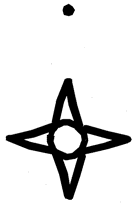Anthropology, Department of

Nebraska Anthropologist
Date of this Version
2011
Document Type
Article
Abstract
In this paper the Cold War between the United States and the Soviet Union is analyzed using a variation of signaling theory. The signals sent between the two nations were important as they could be used by both countries to achieve victory, defined as one system of government and economics triumphing over the other without direct military conflict. To achieve victory both countries had to signal their fitness to the people of the world. By treating a conflict as a collection of signals it may be possible to understand what signals lead to what behaviors and see these signals in the current relationships between nations.
Signaling theory allows several events of the Cold War to be understood more clearly as the actions of each nation are interpreted as signals meant to convey more than just the action itself.


Comments
Published in THE NEBRASKA ANTHROPOLOGIST, Volume 26 (2011). Published by the Anthropology Student Group, Department of Anthropology, University of Nebraska, Lincoln, Nebraska 68588. Copyright © 2011 University of Nebraska-Lincoln's AnthroGroup.